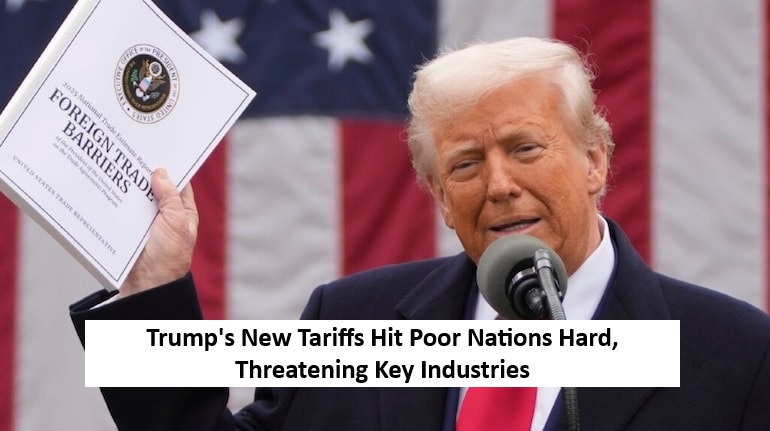
A new wave of tariffs introduced by former US President Donald Trump is affecting some of the world’s smallest economies. Countries like Lesotho, Myanmar, and Nauru now face steep duties on exports to the US, with little warning or explanation. Lesotho, a major exporter of denim apparel, is hit with a 50% tariff, endangering 30,000 textile jobs that depend on US trade access via the African Growth and Opportunity Act (Agoa).
Thousands of Jobs Now at Risk in Lesotho
In Lesotho, government officials and business leaders are expressing concern. Trade Minister Mokhethi Shelile plans to address the crisis publicly, and a delegation will soon travel to Washington. According to Thabo Qeshi of the main business chamber, the industry could collapse entirely under the new trade barrier.
Tariff Selections Raise Questions of Fairness and Logic
Other nations are also affected:
Myanmar faces a 45% tariff while still recovering from a recent natural disaster.
Nauru sees a 30% tariff on its modest $1.16 million in exports.
Saint Pierre and Miquelon received a 50% tariff targeting its seafood exports, despite being excluded from the final official order.
South Africa and Madagascar Included Without Clear Justification
South Africa now faces a 30% tariff, which experts suggest may be politically motivated. The auto and citrus industries are especially vulnerable. Madagascar, with a low GDP per capita, is now taxed on its key export—vanilla. These moves have sparked fears of deeper economic disruption.
Agoa’s Future in Doubt Amid Trade Tensions
The African Growth and Opportunity Act was designed to promote trade between the US and African nations. But with several Agoa beneficiaries facing new tariffs, experts now question the agreement’s viability. Economist Alex Owino says Agoa is “finished.”
Experts: Tariff Logic Appears Political, Not Economic
Economists argue that the selection of countries and tariff rates lacks clear economic rationale. Ha-Joon Chang from SOAS University of London labeled the process “bizarre,” noting the decisions appear based on 2024 trade balances rather than strategic policy.
Read More: Bangladeshi Students Issue Fresh Ultimatum to Yunus Government Following Death of Sharif Osman Hadi

 Share
Share



